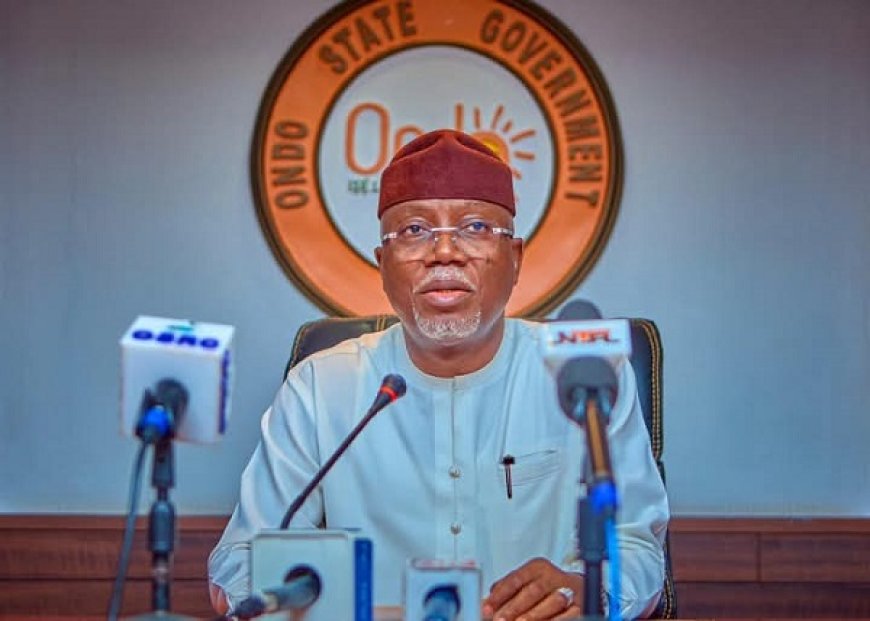Constitutional review: Ondo demands new revenue-sharing formula

Ondo State Governor, Lucky Aiyedatiwa, has called for the review of the revenue allocation formula, which he said was skewed in favour of the Federal Government.
Aiyedatiwa made the call at the South-West Centre B public hearing of the House of Representatives Committee on the review of the 1999 Constitution (as amended) in Akure, the state capital, on Friday.
He also called for true federalism that reflects the socio-political, cultural, and economic realities of the federating units.
The governor said, “Ondo State aligns with the progressive aspirations of the South-West in advocating true federalism that reflects the socio-political, cultural, and economic realities of the federating units.
This would be in tandem with true fiscal federalism, where states have full control over their resources and revenues while remitting about 40 per cent of their revenues to the Federal Government.
“Still on fiscal federalism, it will serve the cause of fairness and justice to have a review of the current revenue allocation formula, which is skewed in favour of the Federal Government. Ondo State is of the opinion that not less than 50 per cent of revenue from the federation should be allocated to the states.”
Aiyedatiwa described the public hearing as an exercise that presented an opportunity for the people to re-examine the framework of the governance structure, identify areas that require reform, and make informed amendments that would enhance the stability, security, and development of Nigeria.
The Commandant-General of the Nigeria Security and Civil Defence Corps,
Ahmed Audi, in his paper, called on the National Assembly to grant full constitutional recognition to the corps in line with its original mandate of securing lives and property.
Audi, who was represented by Commandant Hammed Abodunrin, lamented that Section 214 of the 1999 Constitution, which states that “there shall be only one police force in the country,” has been misinterpreted over the years, leading to an unhealthy relationship between the corps and the police force.
He added that the appointment of a retired police officer as acting commandant of the corps at inception to mentor the personnel also contributed to a misunderstanding of the role of the NSCDC.
In the same vein, the Nigeria Union of Journalists called for the constitutional protection of media professionals and the establishment of a media bailout fund to support “struggling independent media organisations” across the country.
The National President of the NUJ, Alhassan Abdullahi, who was represented by the Ondo State NUJ Chairman, Leke Adegbite, stressed the urgent need to address the threats to press freedom, journalist safety, and the economic viability of independent media outlets in Nigeria.
He described journalism as a critical pillar of democracy and transparency, warning that threats to the safety of media professionals and the financial instability of media houses were not just industry concerns, but national issues that could undermine good governance and social cohesion.
Journalists act as the fourth estate of the realm, holding power accountable, exposing corruption, and scrutinising government actions. When their safety is compromised, their ability to fulfil this vital duty is weakened,” Abdullahi stated.

 admin
admin 


